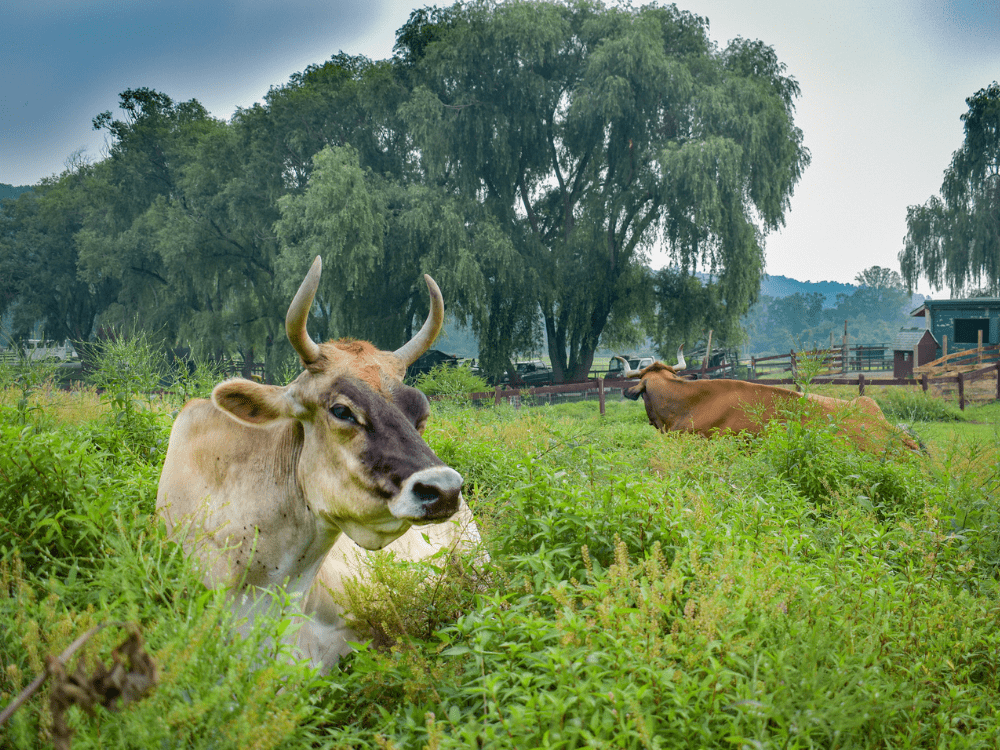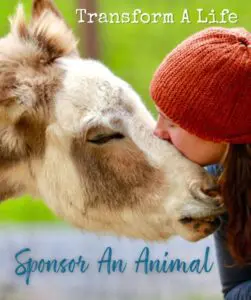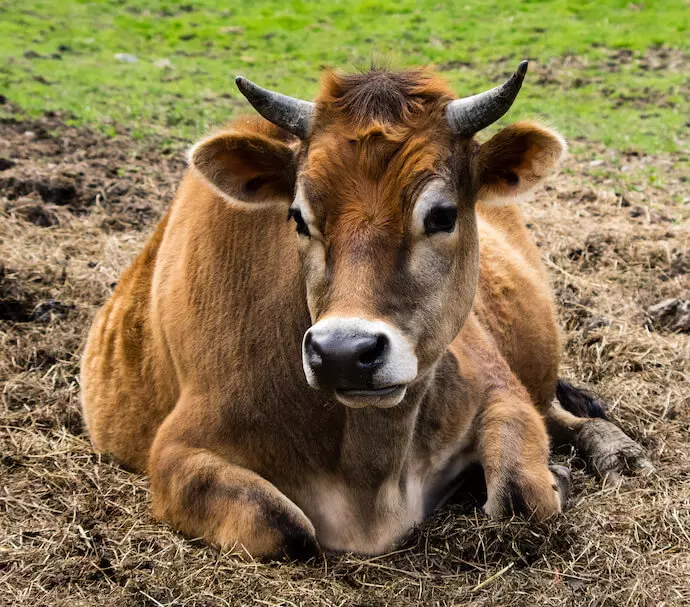
The Elephant In The Room: Why We Must Eliminate Animal Products For A Sustainable Future
Every Earth Day, we reflect on the state of our planet and take action to protect it. Oftentimes, this takes shape in composting, recycling, limiting our electricity use and our dependence on fossil fuels. But at Catskill Animal Sanctuary, we know that one of the most significant steps we can take to help our planet is often not talked about: eliminating animal products from our diets. It is still the elephant in the room, and we ignore it quite literally at the peril of life itself.
Animal agriculture is one of the leading contributors to climate change, deforestation, water pollution, and species extinction. This is not our opinion — it’s fact, backed up by years upon years of research. In 2023, It’s past time to face these facts and take responsibility for the impact our choices have on the world around us, and on future generations who will be forced to adapt to a rapidly warming planet.
To put it concisely, recent data suggests that livestock production contributes between 11% and 17% of global greenhouse gas emissions, according to the most recent GWP-100 values. However, there is considerable uncertainty surrounding these numbers from the UN, FAO, and IPCC reports (multiple studies indicate that traditional estimates of methane emissions from intensive animal operations, including those provided by the FAO, are underestimated and do not match up well with atmospheric observations of methane). Emissions aside, the production of animal products is incredibly resource-intensive, requiring vast amounts of land, water, and energy.
This Earth Day, we’re at a “now or never” precipice when it comes to our planet’s health. The urgency of addressing climate change and reducing our impact on the environment is becoming increasingly clear, and policy is starting to reflect that. In January 2021, President Biden signed a series of executive orders aimed at addressing the climate crisis, including rejoining the Paris climate agreement, and establishing a task force to address the disproportionate impact of climate change on low-income communities and communities of color.
The administration has also proposed a $2 trillion infrastructure plan that includes significant investments in clean energy and sustainable infrastructure. These efforts signal a shift towards prioritizing sustainability and the environment at the highest levels of government. While these measures are far from comprehensive, it’s empowering to know that, despite years of inactivity as our planet continues to heat up, the winds of change are finally heading our way.
Of course, we would be remiss if we didn’t acknowledge the heavy truth that it’s not just the planet that is suffering — animal agriculture is also responsible for incomprehensible cruelty towards billions and billions of animals who are stuck in our food system. It’s hard not to feel empathy towards these beings, especially when we consider how much they resemble our beloved pets and companions. It’s important that we recognize the individuality of these animals, and not reduce them to mere numbers or statistics. Each chicken, each cow, turkey, and pig has a unique personality and is capable of experiencing a wide range of emotions, including fear, pain, and love. The immense physical and emotional suffering these animals must endure would be enough to move even the strongest among us to tears.
But it’s not just the living conditions that are problematic. Many animals are subjected to cruel and painful practices such as castration, tail docking, and debeaking without any pain relief. They’re treated as mere commodities, without any regard for their wellbeing.
It’s also important to acknowledge the impact of environmental racism on marginalized communities. The production of animal products often takes place in low-income neighborhoods and communities of color, leading to a disproportionate burden of environmental pollution and health risks for marginalized groups.
For example, many factory farms and slaughterhouses are located in communities with high populations of Black, Indigenous, and people of color (BIPOC). These communities are exposed to dangerous levels of air and water pollution, as well as increased rates of asthma, cancer, and other health issues. This is a result of systemic racism in our food system, where the people most impacted by the harmful effects of animal agriculture are also the people with the least power to change it.
We cannot ignore the impact of environmental racism on our planet and our communities. By choosing to eliminate animal products from our diets, we can work towards a more just and equitable food system that prioritizes the health and well-being of all people, animals, and the planet.
As we reflect on the state of our planet this Earth Day, we must acknowledge the significant role that animal agriculture plays in the destruction of our environment and the suffering of billions of animals. By eliminating animal products from our diets, we can reduce our carbon footprint, conserve water, and protect our natural resources. Let’s also remember the importance of environmental justice and work towards a future where all individuals and communities have access to clean air, water, and a healthy environment.
At Catskill Animal Sanctuary, we believe that every individual has the power to make a difference. By choosing to live a plant-based lifestyle, we can work towards a healthier and more sustainable future for ourselves and the planet. This Earth Day, we urge you to remember that one of the strongest actions we can take to protect our planet for generations to come is to leave animals and animal products off of our plates today and every day.
Looking to deepen your commitment to making our planet a better place for all beings? Click here to learn how to help by taking an in-person or virtual tour!
animal friends, animal lovers, animal rescue, animal sanctuary, be kind to animals, Catskill Animal Sanctuary, cooking vegan food, dairy alternatives, earth, earth day, environment, Love Spoken Here, vegan for the environment, vegan for the planet






